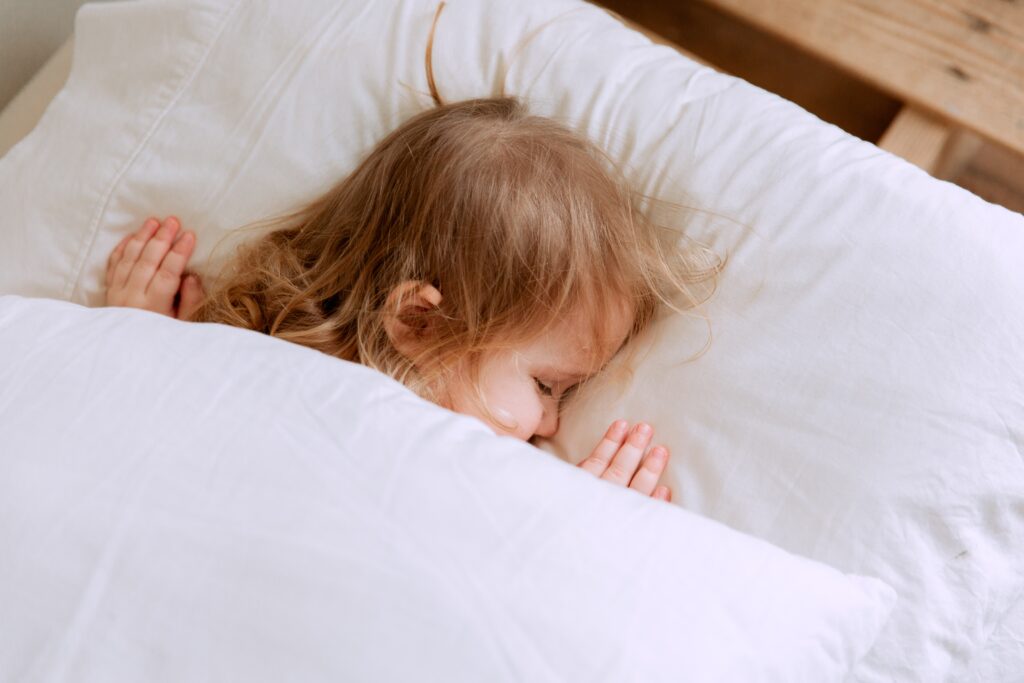There are several reasons why a child with autism may prefer to sleep on the floor.
Below we dive into these reasons and provide you with a few ideas as to how you could handle the situation.
Autism and sleeping on the floor
Whilst every autistic child is an individual, here are some reasons which may be behind the behaviour.
Sensory issues: Children with autism may have difficulty processing sensory information and may find it uncomfortable to sleep on a soft, plushy surface like a bed.
Sleeping on a hard, flat surface like the floor may provide a more calming and grounding sensation.
Although this may seem strange to you and I, we have to realise that autistic children often interact with the world differently.
Routine and predictability: Children with autism may feel more comfortable and secure when they have a set routine and know what to expect.
Sleeping on the floor may be part of their established routine and may help them feel more in control of their environment.
A routine can form very quickly, it may have just been one occurrence of sleeping on the floor.
The problem with routines however is that they can be challenging to break.
Anxiety: Children with autism may experience anxiety or fear related to sleeping, and sleeping on the floor may provide them with a sense of security and comfort.
Temperature: It is often cooler on the floor and if a child is sensitive to being overly warm this may be the reason.
The floor may allow them to be wrapped in covers without overheating.

What to do if your child with autism sleeps on the floor
One of the first things to consider is if your intervention is actually required.
Some people with autism actually sleep well on the floor and struggle in bed.
Consider using a sleep timer or a baby monitor to observe your child on the floor. You may be shocked at quite how much sleep they are getting.
Sometimes as parents we are so desperate for our children to have a ‘normal’ lifestyle that we make things worse for our kids.
With all that said if you decide to intervene, here are some things to consider.
Make the floor comfortable: Provide your child with a comfortable sleeping surface, such as a thick foam mat or a padded sleeping bag, to make sleeping on the floor more comfortable.
Ensure safety: Make sure the area where your child sleeps on the floor is free of any hazards that could cause injury, such as sharp objects or tripping hazards.
Address sensory issues: If your child has sensory issues, try to identify what textures or sensations they find uncomfortable. From there you can provide them with alternatives. For example, if your child doesn’t like the feel of sheets or blankets, try using a weighted blanket or a sleeping bag.
Encourage positive sleep habits: Establish a consistent bedtime routine to help your child feel more secure and in control.
This routine should include calming activities, such as reading a book or listening to calming music.
Consult with a healthcare professional: If your child’s preference for sleeping on the floor is causing significant disruption to their sleep or other areas of their life, it may be helpful to consult with a healthcare professionalm
This could include a pediatrician or an occupational therapist, for additional guidance and support.
Summary – Autism and sleeping on the floor
If your child with autism likes to sleep on the floor the first thing to do is not panic or worry unduly. It is actually quite a common behaviour and if your child is sleeping well it doesn’t necessarily need attention.
You could try and ease your child out of the behaviour or simply adapt to their quirky preference.
For more articles on raising an autistic child feel free to browse our archive.

